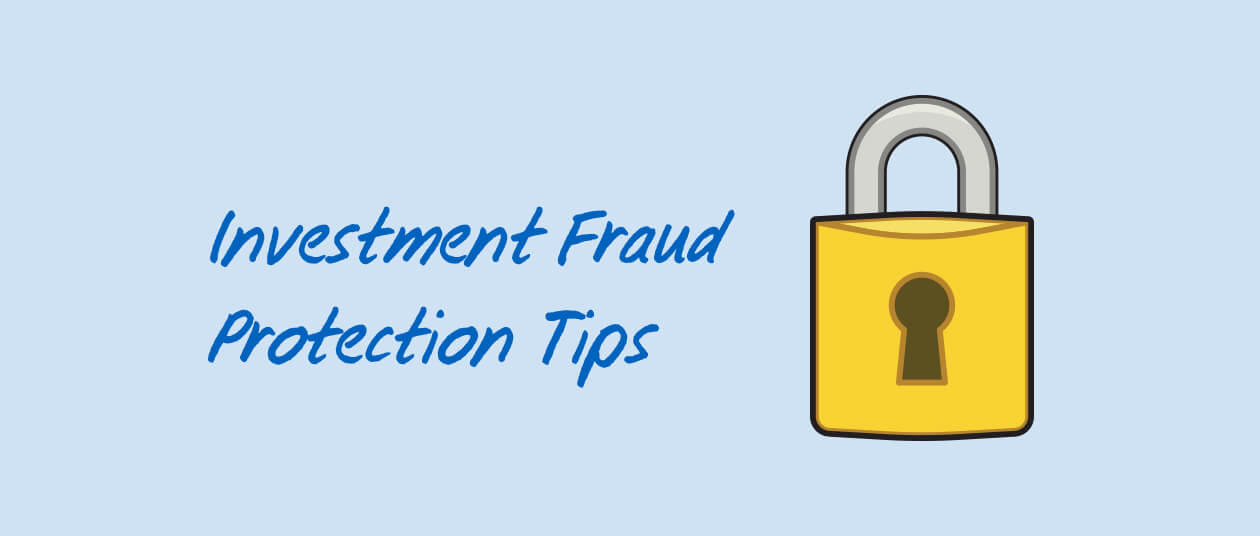Anyone who has an email account has probably been spammed with fraudulent investment “opportunities” that promise a quick and substantial return if you’d just wire a large sum of money to a stranger. Sound familiar?
Some fraud is easy to identify but other types are a little more complex. We have some tips for protecting yourself against investment fraud.
Five things you need to know.
- Know who you are dealing with. Work with reputable and licensed institutions and dealers and only through products and accounts opened directly with them. Confirm their credentials and those of the investment opportunity being offered to you.
- Know the fraud warning signs. The higher the return promised, the higher the risk. If it sounds too good to be true, it probably is. The savvy investor sees red flags attached to the phrases “no risk!” “tax free!” “get in now!” and the promise of secret inside access. If there’s pressure to invest immediately, there’s no time for you to do your homework.
- Know your risk tolerance and your investing goals. Consider your level of investing expertise and how much money you can afford to invest—and perhaps lose. Stay within your limits.
- Know what you’re investing in. Do a background check on the opportunity before investing. Investigate the opportunity and look for a prospectus or offering memorandum. Even the most professional website or brochure can be fraudulent. Ask questions until satisfied that you understand the investment opportunity. Educated investors are much harder to fool.
- Know who to call for help. The British Columbia Securities Commission has an investor education campaign to help people identify the warning signs of fraud. Check out their site where you’ll find information on different investments, choosing and working with an adviser, fraud warning signs and more. Information is also available in Punjabi and Chinese.
How to protect yourself against investment fraud .
- Don’t be afraid to ask questions and make sure you really understand the answers.
- Beware of high-pressure sales tactics.
- Take your time to make decisions. Don’t allow anyone to rush you.
- Never accept a verbal agreement – get it in writing.
- Never sign any documents before reading it carefully.
- Don’t be drawn in by professional appearances.
- Limit your exposure. Diversification might not protect you against fraud, but it will ensure you don’t lose all your assets. Think twice before putting more than 5% of your assets in one investment.
Fraud warning signs.
The BC Securities Commission has a great website to help people be fraud aware. Here’s their quick rundown of fraud warning signs.
- No risk. Don’t believe it. There’s no ‘sure thing’: the higher the promised returns, the higher the risk. Exceptionally high returns are the bait they use to get you to part with your money.
- Profit like the pros. These scams are pitched as opportunities known only to a select few who are said to be making a lot of money. The scam artist tells you that they have access to this inside information. If you are told ‘it’s confidential’ or you are shown a ‘non-disclosure agreement’, these should make you wary.
- Offshore, tax free. Fraudsters pitch this deal as a way to avoid paying taxes. They tell you to move your money offshore ‘to avoid taxes’, when they really want you to move it to their inaccessible offshore account. They also tell you to keep it a secret so that you don’t benefit from the caution of financial advisers who might see through the scam. If you move your money offshore to evade your taxes you may be committing an offence and be getting scammed without recourse. Is that risk worth it?
- Get it now. Scam artists use this tactic to pressure you into making a quick decision. They make the offer more attractive by suggesting they have secret information that the general public doesn’t have.
- Your friends and family can’t be wrong. This pitch relies on the trust you place in your loved ones, friends or community. Scam artists target religious, ethnic, or close-knit groups by working their way into organizations and befriending senior trusted members in order to defraud them. The scammers leverage the trust and confidence people place in group leaders as their path to your money.
Want more help?
Head to our website for even more security and fraud resources to protect yourself and your money.



